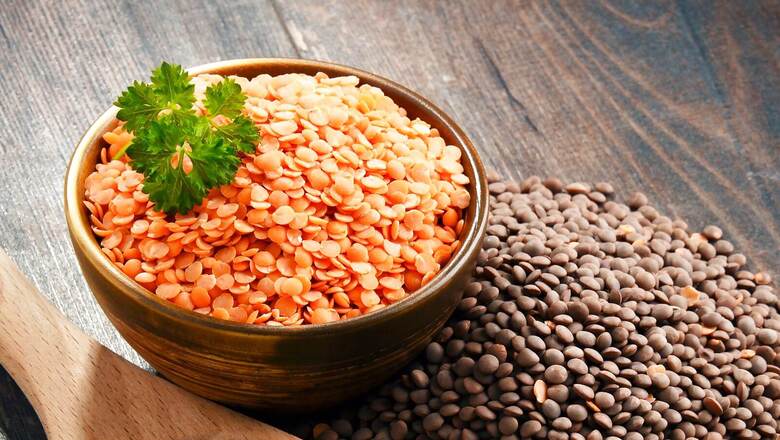
views
To augment domestic availability and stabilise prices of essential food commodities, the government has extended the deadline to import tur and urad under the ‘free category’ till March 31, 2023, to ensure smooth and seamless imports.
The government had allowed the import of tur, urad and moong under the ‘free category’ with effect from May 15, 2021, till October 31, 2021. The free regime in respect of import of tur and urad was thereafter extended till March 31, 2022. Under the regime, introduced in May last year, specified pulses can be imported without any quantitative restrictions.
The decision has put to rest the speculations regarding the import policy regime for tur and urad in the coming financial year (2022-23) and it also signals a stable policy regime that will benefit all the stakeholders, according to an official statement. “This policy measure has been supported with facilitation measures and close monitoring of its implementation by the concerned departments/organisation.”
“The measure will ensure seamless import of these pulses to augment the domestic availability. It is expected that sufficient availability of these pulses will make them available to the consumer at affordable prices,” the Ministry of Consumer Affairs, Food & Public Distribution said in the statement.
According to data from the Department of Consumer Affairs (DoCA), the all-India average retail price of tur dal as reported on March 28, 2022, stands at Rs 102.99 per kilogram, which is a drop of 2.4 per cent from the price of Rs 105.46 per kg on March 28, 2021. “The All-India average retail price of urad dal as reported on March 28, 2022, is Rs 104.3 per kilogram, which is 3.62 per cent less than the price of Rs 108.22 per kilogram on March 28, 2021,” the statement said.
According to the second Advance Estimates for the 2021-22 season, the government had pegged the tur output at four million tonnes, compared with 4.32 million tonnes in the previous year. India has also signed a pact with Mozambique to import two lakh tonnes of tur or arhar annually for five years, when the retail prices of tur skyrocketed to Rs 200 a kg in 2016.
According to an official statement release last month, the wholesale price of tur dal declined about three per cent in the past one year on the back of measures taken by the government to boost domestic supply and stabilise rates. “The government has taken several proactive and pre-emptive measures to augment domestic availability and stabilise prices of essential food commodities. It is because of these measures that the price of tur/arhar dal reported a sharp decline,” the official statement had said.
In May 2021, the Centre said advisories were issued to states/UTs to monitor prices of essential food commodities and to ensure disclosure of pulses stocks held by millers, importers and traders under the Essential Commodities Act, 1955. Imposition of stock limit on all pulses except moong was notified on July 2, 2021.
Read all the Latest Business News and Breaking News here














Comments
0 comment